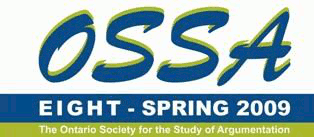
Location
University of Windsor
Document Type
Paper
Start Date
3-6-2009 9:00 AM
End Date
6-6-2009 5:00 PM
Abstract
Patients, doctors, and families faced with end of life decision-making face a myriad of interpretations about what constitutes a good, dignified death. For this reason, I argue that argumentation theorists can and should enter this fray in an effort to map the axiological (ethical and aesthetic) modes of argumentation at play and offer a means for the creation of commonplaces that might make decision-making in this vein more productive and fulfilling for those involved.
Creative Commons License

This work is licensed under a Creative Commons Attribution 4.0 International License.
Response to Submission
Claudio Duran, Commentary on Rief
Reader's Reactions
Claudio Duran, Commentary on Rief (June 2009)
Included in
A Good Death: Dignity-based argumentation at the end of life
University of Windsor
Patients, doctors, and families faced with end of life decision-making face a myriad of interpretations about what constitutes a good, dignified death. For this reason, I argue that argumentation theorists can and should enter this fray in an effort to map the axiological (ethical and aesthetic) modes of argumentation at play and offer a means for the creation of commonplaces that might make decision-making in this vein more productive and fulfilling for those involved.
